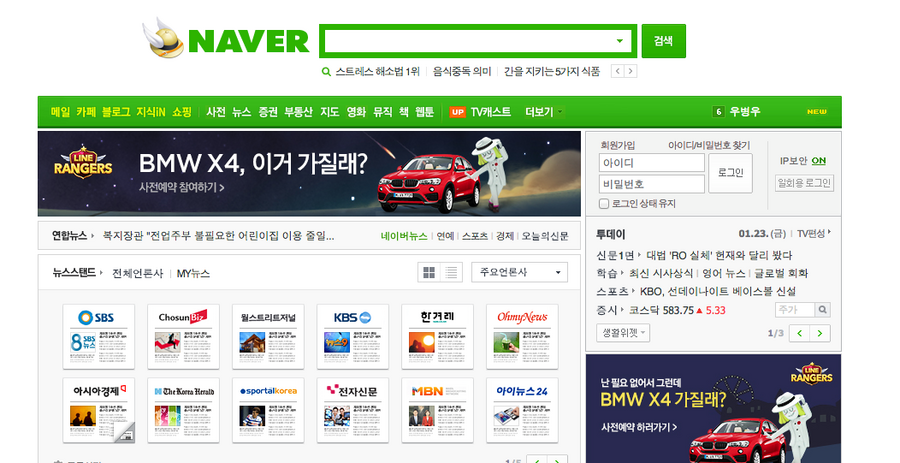What is Naver? Around the time Google was celebrating its first birthday, the IT department at Samsung was starting its own search engine story across the world in South Korea. At time time, 1999 to be exact, there were few fancy search functions and few websites that could be searched in Korean. Naver set out to change both of those things.
First came “Comprehensive Search” a multifaceted Web search that brought up results from blogs, news, and images. This was an unprecedented move in the search engine world, and came five years before Google’s “Universal Search,” which offered the same features.
Then came “Knowledge Search.” Korean has never been the primary language on the Web – in order to put more local sources online, in 2002, they launched a user-generated service where people posed questions to the website and gave points to the best answer. To date, there are more than 80 million question pages on Naver, creating a huge Korean-language Internet network.
Though relatively independent from the start, Samsung sold the last of its shares in Naver in 2004, and the company has taken off. Today, Naver offers a blog service, e-mail, news service, and a children’s website, as well as subsidiaries that operate a search engine and mobile messaging platform based in Japan.
Why will it beat Google? Though Google has a whopping 70 percent market share across the globe, Naver’s localized popularity has kept it humming in Asia despite competition from one of the strongest websites in the world. Naver is currently the fifth most used search engine in the world (behind Google, Yahoo, Bing, and China’s Baidu) though it is only operated in Korea and Japan. However, its success makes South Korea one of only three countries in the world where Google isn’t the top search engine (the others are Russia and China). It has almost an 80 percent search engine market share in South Korea.
Naver also recently pushed forward with a mobile messaging/social media service called Line. Line quickly grew in popularity since its launch in 2011, and today boasts 400 million users across Asia, Europe, and Latin America.








